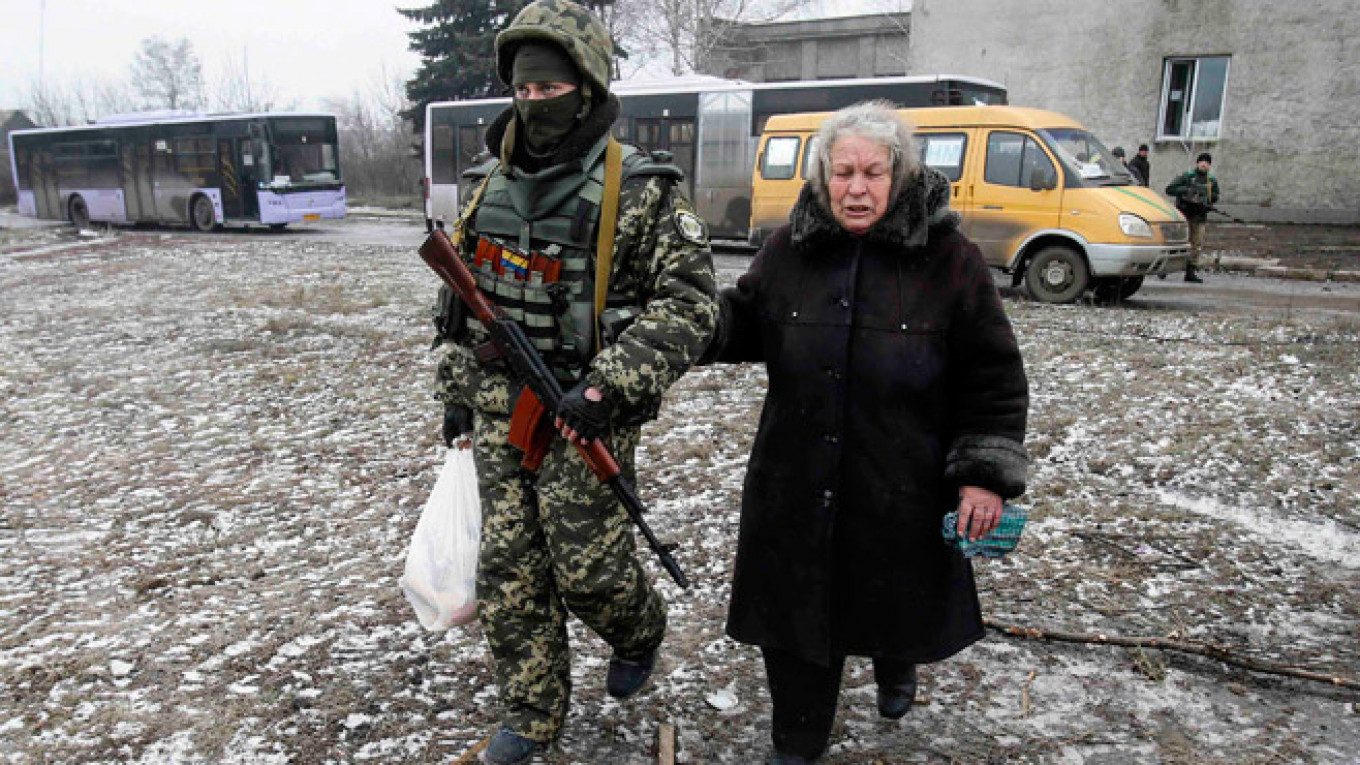The renewed violence in Mariupol, Donetsk and other parts of eastern Ukraine and the scores of civilian casualties that resulted has returned attention to an unwelcome reality in eastern Ukraine. While no one expected fighting in embattled Donetsk and Luhansk to end in the opening months of 2015, tensions had calmed for several weeks after the signing of the Minsk Protocol in September.
As is all too explicitly demonstrated by the shelled homes and body bags, this temporary quiet was largely superficial. Indeed, the conflict has taken an abrupt U-turn, returning to and even surpassing levels of violence witnessed during the summer of 2014.
Four separatist offensives have been successful in attaining both symbolic (the Donetsk airport) and strategic victories (moving toward encircling Ukrainian positions at Debaltseve). Characteristic to the conflict, speculation on Kremlin involvement abounds.
Given the dynamic and chaotic conditions at the front lines, it has thus far been difficult to accumulate reliable details. Meanwhile, a slew of accusations, misinformation, half-truths, and questions continue to be rapidly shot across the narrative space between Washington, Brussels, Kiev and Moscow.
In the short-term it appears that the Kremlin has weighed the costs of a continued military campaign and has decided to support a renewed offensive push to apply more pressure on Kiev. Even before the recent surge in fighting, Kiev's best-case scenario involved extreme federalization of the eastern regions or a frozen conflict, similar to the situation in South Ossetia and the breakaway republic of Transdnestr.
As Moscow increasingly — despite its assertions otherwise — entrenched itself across the border, it began to feel the short-term (economic sanctions) and long-term ripple effects (thousands of refugees spilling onto its territory) of Ukraine's political divide. In simple terms, this propelled the Kremlin to compensate its economic and reputational losses by maintaining its defiant stance against the West and seeking additional concessions from Kiev.
While this tactic may bolster domestic support and turn war-torn eastern Ukraine against Kiev, its trajectory is not sustainable. These push and pull methods will eventually fall in line with the harsh economic and human costs that this conflict has accumulated. The Kremlin continues to raise the stakes, allowing the free movement of weapons, soldiers, and other material across its border with Ukraine, prompting dire consequences for the local population, as well as for the region's stability.
With these considerations in mind, it is clear that recent events are a return to the norm, rather than an unexpected disruption in some accrued peace process. The conflict will continue to ebb and flow so long as each side views itself capable of achieving more strategic or symbolic objectives.
To effectively end this cycle, Moscow must commit to securing its border with Ukraine, ending all flows of military support to the separatists, and publicly supporting Ukraine's sovereign right to maintain its territory. For its part, Kiev must cede short-term political goals and relinquish hard-fought territory to establish a firm and well-defended buffer zone west of the current line of engagement.
A calculated retreat provides an opportunity for Kiev to double-down on drastically overdue structural economic reforms before the opportunity for change evaporates.
Alec Albright is a graduate student at Georgetown University.
A Message from The Moscow Times:
Dear readers,
We are facing unprecedented challenges. Russia's Prosecutor General's Office has designated The Moscow Times as an "undesirable" organization, criminalizing our work and putting our staff at risk of prosecution. This follows our earlier unjust labeling as a "foreign agent."
These actions are direct attempts to silence independent journalism in Russia. The authorities claim our work "discredits the decisions of the Russian leadership." We see things differently: we strive to provide accurate, unbiased reporting on Russia.
We, the journalists of The Moscow Times, refuse to be silenced. But to continue our work, we need your help.
Your support, no matter how small, makes a world of difference. If you can, please support us monthly starting from just $2. It's quick to set up, and every contribution makes a significant impact.
By supporting The Moscow Times, you're defending open, independent journalism in the face of repression. Thank you for standing with us.
Remind me later.






